Search for academic programs, residence, tours and events and more.
Laurier researcher Treisha Hylton is using surfing as social work
August 11, 2025
Treisha Hylton is taking social work out of the office and into the ocean. She returned to her home country of Jamaica to help young Black girls grow and heal through surfing.
In partnership with a non-profit surf school called Surf Girl Jamaica, Hylton held a two-week camp for 15 to 18-year-old girls who wouldn’t otherwise have the opportunity to surf. They gathered at Bull Bay beach each day and shared their feelings, worries and dreams as they paddled through the waves.
“My clinical work is in the ocean with these girls,” says Hylton, an assistant professor of Social Work at Wilfrid Laurier University. “We’re paddling out two miles and we’re talking on our surfboards. That is social work to me. We can meet Black girls where they’re at and provide an access point. Some of the best social work I’ve done is through sports programming.”
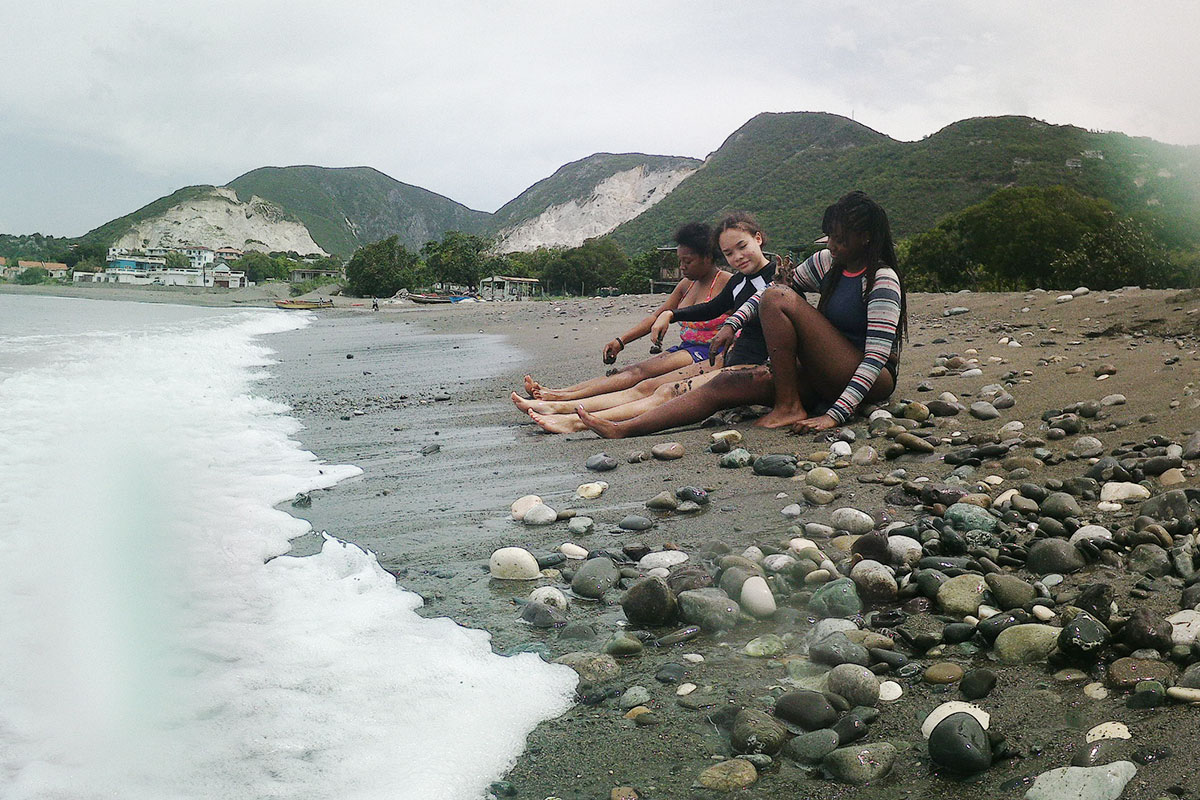
A former collegiate basketball player, Hylton is a strong proponent of women’s sports and the life skills they foster.
“Sports taught me how to fail; sometimes you just have to get back up,” says Hylton. “Learning to surf is not easy and these girls did it. For two weeks, they got in the water every day. They fell. They took a rest. They got back in. That builds so much courage, resilience, leadership and teamwork. It was so cool to see them watch out for each other, work together and cheer each other on.”
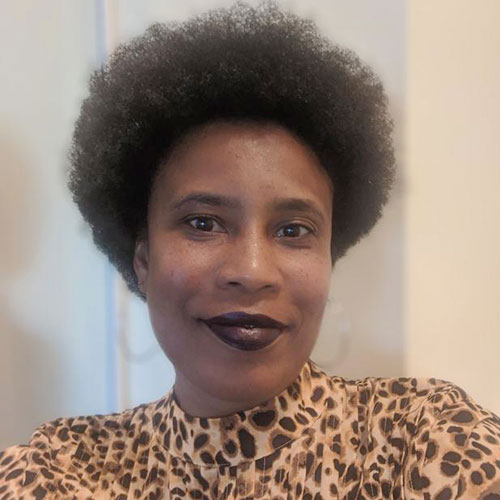
“My clinical work is in the ocean with these girls. We’re paddling out two miles and we’re talking on our surfboards. That is social work to me.”
Treisha Hylton, assistant professor, Social Work
An essential part of Hylton’s research is learning how to make surfing accessible to all, which includes providing lessons, lunch, swimming caps and transportation. Hylton says one of the biggest barriers for Black girls is that surfing has become an elite sport.
“We as Jamaicans don’t have access to our own land – it is reserved for tourists,” says Hylton. “There are only a couple of public beaches left, so surfing is now associated with wealthy white men from California and Australia. Seeing Black women surf disrupts that image. We are reclaiming a sport we have been excluded from.”
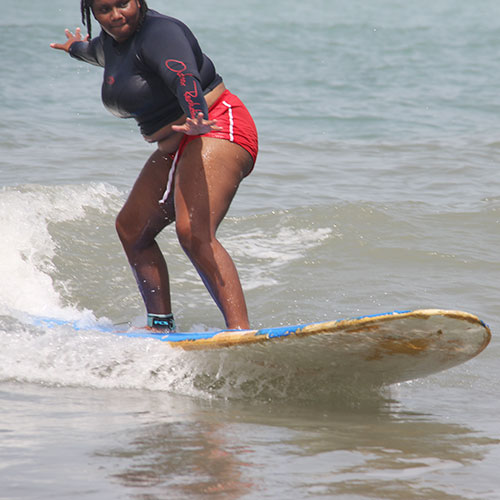
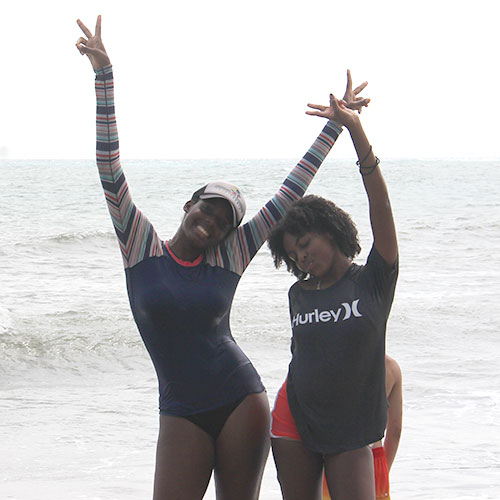
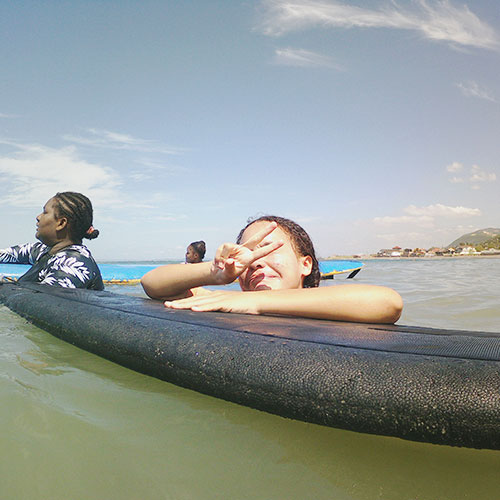
Hylton documented her fieldwork through imagery, giving participants disposable cameras so they could take pictures of themselves surfing. She is sharing their work and plans to continue her research alongside grassroots organizations in Senegal, Ghana and Brazil.
“I want to keep building these spaces of community and joy,” says Hylton. “Water is healing. With our history of colonization, Black folks have been intentionally excluded from learning how to swim and told we don’t belong in the water. This gives us a chance to reintroduce ourselves.”